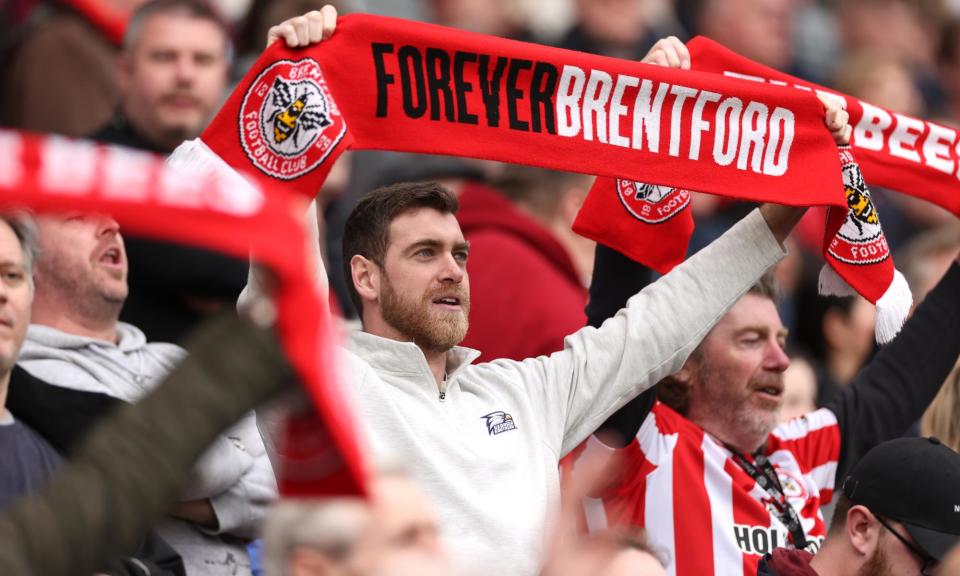UK government urged to harness football clubs for ‘social connection’

The increasing cultural significance of football clubs means they should be harnessed by government to develop “social connection” within communities, a new report claims.
The popularity of the national sport among all sections of society and strong links between local teams and community identity mean clubs are well placed to spread messages of inclusion, bringing together communities that might otherwise not interact, the study argues.
Related: Parliament urged to look at sportswashing clause in football bill
According to the paper published by thinktank British Future, which works on issues around national identity, football is not only “one of the rare cultural institutions able to reach all parts of our society” but clubs “occupy an important role in the social infrastructure of our towns and cities”. The report, entitled The Power of Football Clubs to Connect Diverse Communities, argues that clubs can grow their fanbases – and government achieve greater social cohesion – by further developing these strengths.
Among the report’s recommendations, it suggests clubs focus on consulting their local community, creating an inclusive identity in their marketing messages and promoting spaces in and around the ground which are welcoming, such as family areas. It also champions a buddying programme run this season by the British Red Cross and 10 EFL clubs which pairs fans from different backgrounds to share the matchday experience. To help fund such initiatives, the government should channel funding from its levelling-up fund, the report suggests.
In compiling the report, British Future worked with Huddersfield and Brentford in running pilot campaigns to trial the approach, including consultations with three distinct groups of people: “traditional fans”, “armchair fans” and representatives of ethnic and faith minorities. Preeti Shetty, a director at Brentford who led the project, said the club used the opportunity to try to “look under the hood” of existing diversity and inclusion work.
“There’s always going to be a group of fans, community groups that are super engaged with this work, but what about everybody else?” says Shetty, who argues that feedback from supporters has traditionally been more “operational than aspirational”. These focused conversations instead brought out different concerns.
“It’s come out very clearly that our fans do value diversity,” she says, while fans also saw the club as “acting as a community hub, this physical space where people are forming local connections”. But fans also wanted the club to be more present in their lives. “It’s the visibility, I think, of seeing your club all the time, and knowing that they are more than just football,” Shetty says, begging the question: “How is the club involved in what else is going on locally?”
Shetty says the pilot programme has led the club to be more proactive in its communications. “A lot of what we’ve been trying to do is work with our fans and our community to understand, whether it’s your first game or your 500th game, how do we make this a welcoming place for you? I think what we’ve said quite vocally now, is: ‘We want to hear from you.’ We are opening that door, which I think is great.”

